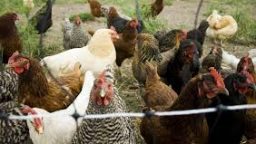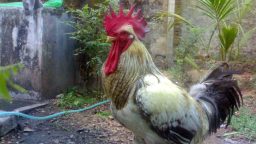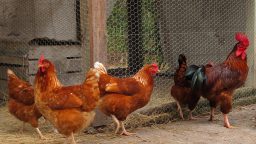After investing so much time, energy, money, and emotion into raising your pigs you want things to go right when you slaughter them. If it is your first time slaughtering a pig, a sloppy kill and messing butchering can really turn you off from wanting to raise pigs in the future. The following are directions and tips on slaughtering and butchering pigs. Make sure to thoroughly plan things out before you begin, you will not be able to stop half way through and finish it later.
Clean Kill
Plain and simple, shot the pig between the eyes. You do not want to try to bludgeon, or stab an animal that is as large and powerful as a pig. It could easily only injure the animal, prolonging its suffering and putting you at risk for retaliation. To get a clean shot, put some tempting feed in a container on the edge of its pen, this will put the pig in one area, holding still, with its head down.
Cut the Throat
Cutting the pig’s throat immediately after shooting it will allow it bleed out quickly while the heart is still pumping.
Clean the Pig
Get the pig out of the pen and hose it off so that you are working with a pig covered in mud and manure. Pay close attention to the feet, they are the dirtiest part.
Raise it
If you have the ability to get the pig off the ground it will keep things cleaner and easier, though it can be done on the ground if you have to. Cut into the pig’s legs behind the hoof so that you can pass the knife behind the tendon, leaving the tendon intact. Pass a rope or chain through the holes and wench the animal to a height that is comfortable for you to work at.
Remove Skin and Hair
If you can dunk the whole pig, or half at a time, in hot water, the job will be easier. But you can get it done just by pouring pots of boiling water on one area at a time. You can use a specified tool, a “hog scraper”, or just a sharp knife or razor to scrap the hair and outer skin off the animal.
Remove the Head and Innards
Unless your pig is still small and you are going to roast it whole, now is when you will want to remove the head. Then, make your cut to open the pig up. Start just in front of the anus on the belly side, and go down to the sternum, starting shallow. If you can open the belly up slowly and then cut around the anus carefully so as not to open the intestines, push the anus through the hole and out the hole in the belly, then remove the intestines and all innards.
At this point you can cut the pig in half with a bone saw, dividing the pig left and right. Or if the pig is smaller and you have room, you can store the pig whole and butcher it to your preference later. It’s not for those with a weak stomach. Before raising a pig, carefully and honestly consider if you are going to be willing and able to process that pig into meat. If not, raising pigs just isn’t for you.
If you liked this, you might also enjoy…







